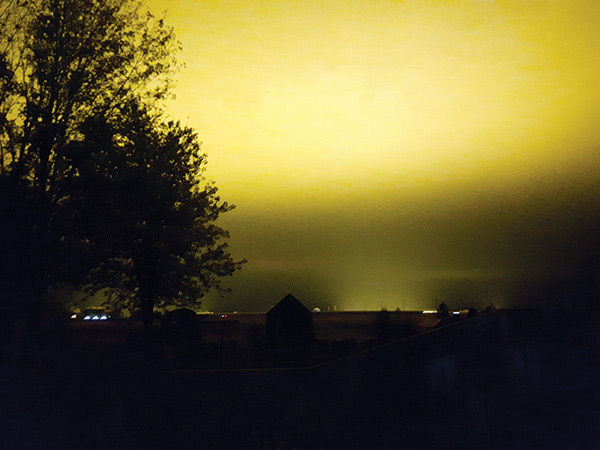Kingsville enacts by-law to limit light pollution
- ESSEX FREE PRESS

- Nov 4, 2020
- 3 min read
- Leamington to seek additional information -

by Adam Gault
Kingsville municipal Council has enacted a by-law to combat light pollution from greenhouses and odours from cannabis production facilities within its municipal borders. Neighbouring Leamington however, has decided to seek more feedback from the greenhouse industry and its residents before the potential implementation of a similar by-law.
Passed through Council on Monday, October 26, the new Kingsville by-law, which went into immediate effect, will place the issues of light and odour pollution as public nuisances, with the agricultural facilities being responsible for their mitigation under threat of several degrees of fines.
These by-laws come into effect after several years of complaints from residents and environmentalists across Essex County, who noted that the excessively bright nighttime sky of yellow, purple, and other unnatural light, was impacting quality of life for human residents and animals.
“This is a challenge faced across the region,” Kingsville Mayor, Nelson Santos, said. “Council moved this bylaw to mitigate nuisances affecting overall enjoyment of property for residents, and our enforcement officers are setting short timelines to give growers the opportunity to comply, or provide proof compliance is imminent, before tickets are issued.”
At this time, Kingsville will provide further outreach to area greenhouses and producers for additional awareness and education on what is expected of them to be compliant of the new by-law, and will be inviting area growers to an information session in the near future to explain the specific by-law requirements before issuing immediate fines.
Fines for individuals found in violation of the new by-law will start at a maximum $5,000 for a first offense, to as much as $10,000 for additional offences. Corporate offenders can face fines of up to $50,000 for an initial offence, and a maximum of $100,000 for subsequent offences.
Representatives from the greenhouse industry attended the meeting, with Mucci Farms CEO Bert Mucci stating that greenhouses cannot operate with a total blackout, and that having a maximum of 90 percent of light blocked out as seen in Ohio by-laws, is critical for their industry to survive in Essex County.
“We cannot as an industry, as greenhouses, we cannot be at a one hundred percent black out,” Mucci explained. “That 10 percent is the gap that we need to grow our crops or else there will be no industry.”
The following night, Tuesday, October 27, Leamington municipal Council met to discuss the possible implementation of a similar by-law for their municipality, but decided to defer any possible decision to await further feedback from additional industry specialists, as well as town residents.
“To put forward a bylaw which isn’t based on fact, it will end in the courts or in front of an appeal board,” Leamington Mayor, Hilda MacDonald, said. “I don’t want to see that.”
Dr. Justine Taylor, Science and Government Relations Manager of the Ontario Greenhouse Vegetable Growers Association, spoke at Leamington’s meeting, and like Mucci Farms representatives, explained that a total greenhouse blackout is not possible.
Dr. Taylor added complete use of blinds and curtains will lead to overheating in the greenhouses, which will cause the destruction of crops, adding that an 85 to 90 blackout would be more feasible.
A final by-law will be decided by the Municipality of Leamington at a Council meeting, for which the date is still to be determined.




